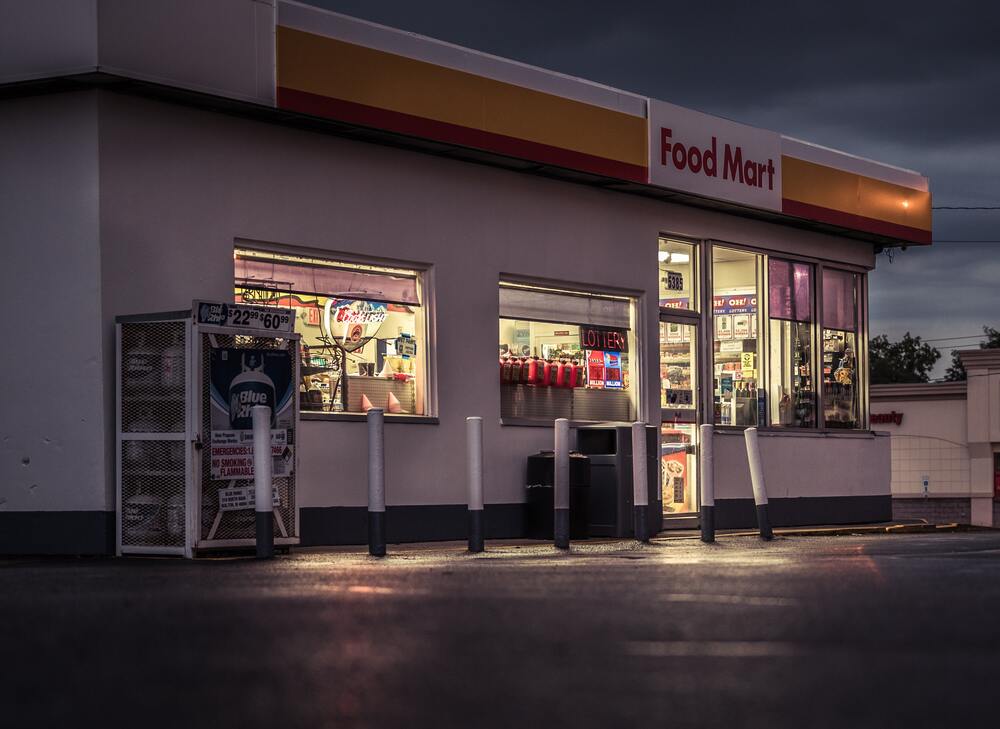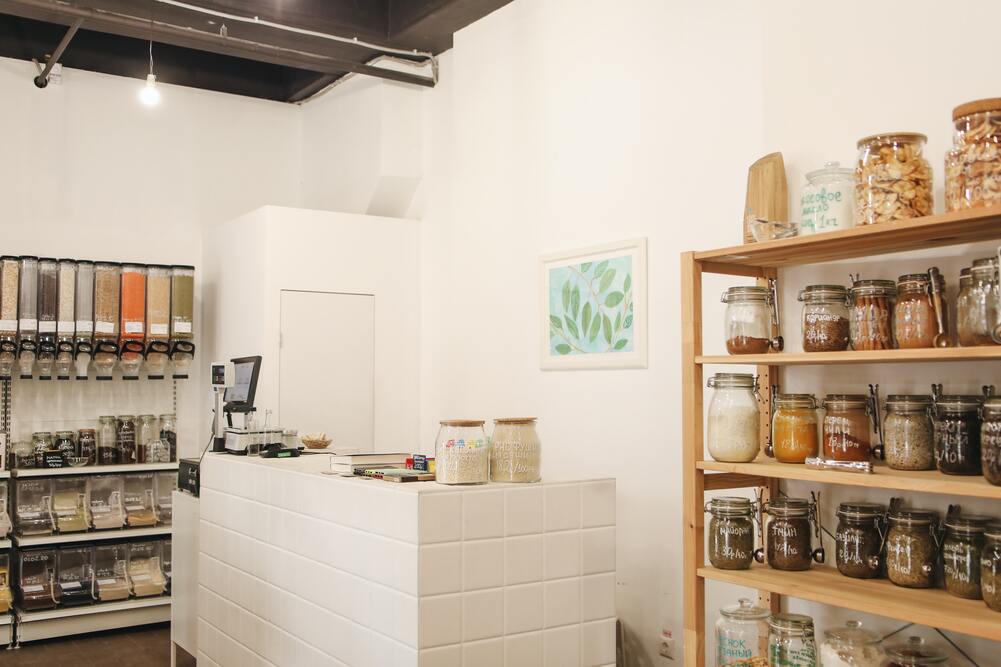Have you heard the word 'retail business? Some of us are certainly familiar with the word. However, what exactly is retail and what are the important things related to the business?
For those of you who want to find out more about what retail is, the following article will help you understand these topics one by one.
Definition of Retail Business
A retail business or retail trader is a business that sells goods or services directly to consumers for personal consumption and not for resale (only for personal use).
According to one expert named Sopiah & E.M. Sangadji, retail can be interpreted as the activity of selling daily goods or services to meet consumer needs.
The other explanations related to the definition of retail according to experts are contained in the following explanation.
-
Barry R. Berman dan Joel R. Evans
Berman and Evans explained that what is meant by retail is a business activity that is closely related to product marketing with the ultimate goal of the goods and services offered to be able to reach consumers and be used for themselves or to meet household needs.
-
Philip Kotler
According to Kotler, retail is a series of processes of selling goods and services in units (retail) to reach consumers and can be used to meet their individual needs.
-
David Gilbert
Meanwhile, Gilbert argues that retail is all efforts made to be able to satisfy end-level consumers, starting from deploying marketing expertise to services or services.
From the existing explanation, clearly, the retail business can be defined as a business that sells services and retail goods (units) with the aim of meeting the daily needs of the community and not for resale.
The Difference between Retail Business and Wholesale
Even though it looks like they sell people's needs together, in fact, the wholesale and retail businesses have different meanings. There are at least three differences that stand out the most.
1. Sales Purpose
Retail focuses on the end consumer where goods and services are offered for personal consumption only. Meanwhile, wholesalers sell goods and services which can then be resold by retail traders.
2. Product Prices
The existence of differences regarding sales objectives certainly affects different selling prices where wholesale prices will be cheaper because the products purchased can be resold. In addition, retail traders and sellers can make a profit from each item sold individually (retail).
In line with these low prices, wholesalers generally determine the quantity of the product purchased. For example, canned milk available at wholesalers can only be purchased in 1 box, not individually.
3. Target Market
The presence of wholesalers is more intended for small-scale business actors, for example, food stalls or Madura shops. Even so, you can still shop in bulk if you need a large number of products.
Retail Business Functions
The role of the retail business in the survival of society is very important and of course mutually beneficial for both parties, both buyers and sellers. The other roles of retail are as follows.
1. Make it easy for consumers to get goods
The presence of the retail business is also a bridge between producers and consumers. Thus, consumers will find it easier to get the products they want and can be purchased at retail, according to their needs.
2. Providing Benefits for Manufacturers and Wholesalers
In addition to the consumers who benefit, producers and wholesalers both benefit. This is because retail traders will buy in large quantities from wholesalers where the goods are obtained from producers. Profits derived from sales by the producer will be played back for the production process.
3. Assist in Product Promotion
Not only helping consumers to meet their needs, the existence of a retail business also helps promote the products being sold. Retailers or retailers generally have a sales force (sales), product catalogs, and customer service to maximize sales of existing products. One example is by educating potential consumers about the importance of maintaining body hygiene by using certain brands of soap.
4. Observing the Market
The retail business deals directly with consumers. They distribute existing products directly to the public so they can easily find out which products are most in demand and best-selling in the market. This phenomenon can be used as positive feedback for wholesalers and producers to sell goods and services needed by the community.
Retail Business Purpose
Broadly speaking, the emergence of the retail business is very helpful for people to meet their needs for products and services. The other goals of retail as follows.
1. Helping Consumers Obtain the Desired Goods
2. Selling Products in Fewer Quantities Making It Easier for People to Reach and Meet Their Daily Needs
3. As a Liaison Between Distributors and Consumers
4. Collecting information related to goods and services currently needed by the community
Retail Business Type
The type of retail business is divided based on the products sold, ownership, and finally based on the location of sale. Let's look at the full explanation in the following description.

Image Source: Pexels/Chris F
1. Based on Products Sold
If classified by product sold, retail has 3 different categories.
-
Product Retail
This retail focuses on selling certain products. One example is the thrift shop business that specializes in selling preloved clothes (secondhand clothes).
-
Service Retail
Apart from goods, there are also types of retail that focus on offering services. For example, the motorbike repair shop, presence is quite important, considering that the number of motorbike riders in Indonesia is one of the highest.
-
Non-Store Retail
Not all retailers use human power as the spearhead of sales success. There are also types of retail that use machines to offer the products they have. For example, goods sold in vending machines. Besides being more practical, consumers can also be more flexible in choosing the product they want.
2. By Ownership
Based on ownership, retail is divided into 3 types. Among them are independent retail, franchise retail, and group retail.
-
Independent Retail
As the name implies, this type of retail operates independently where the ongoing operations do not depend on other parties. Examples are grocery stores, food stalls, and shophouses.
-
Retail Franchise
This type of retail markets products similar to the central company where the franchise business owner does not need to start an existing business from scratch. It is enough to follow the rules of the game from the center and buy property according to the agreement.
3. Based on Sales Locations
In addition to the 2 things above, retail can also be classified based on the place of sale. Where there are many sellers in 1 place that offer a variety of needs, from goods to services. An example is a retail strip or other designation of commercial land.
4. Based on Business Scale
There are many types of retail that make retail divided into 2 different scales, namely large-scale retail and small-scale retail.
-
Large Scale Retail
This type of retail sells goods on a large scale or in large quantities. Generally, this retail sells a wide selection of products that are quite complete and have many choices. Examples are convenience stores, department stores, chain stores, and others.
-
Small Scale Retail
This type of retail tends to offer a limited number of products. Examples are street vendors, mobile vendors, kiosks, and non-permanent sellers.
Example of Retail Business
What are some examples of retail businesses in Indonesia? The following are some examples of retail in Indonesia that help meet the daily needs of the wider community.
1. Grocery Store
Grocery stores or small basic food stalls are examples of retail in Indonesia. We can easily find this retail in residential areas and provide a fairly complete variety of products. Such as food and drink, household needs, and much more.
2. Department Stores
Next are department stores. In terms of size, this type of retail is certainly bigger and more complete than a grocery store. The distinctive feature of this type of retail is that the goods sold are grouped according to their type in different places. For example, women's shoes are specifically in the area of women's fashion only.
3. Warehouse Retailer
This type of retail is in the form of a warehouse facility and sells goods in large quantities. Therefore, the price of goods sold is much cheaper than buying retail.
4. Convenience Retailer
This retail business can generally be easily found at gas stations or rest areas and offers a variety of products that can support the needs of consumers.
5. Specialty Retailer
A specialty retailer or special retailer is a type of retail that exists in Indonesia and only provides products with special categories. For example, retail for well-known brands such as Victoria's Secret, Nike, Uniqlo, and many more.
6. Mobile Retailer
As the name suggests, a mobile retailer is a type of retailer that sells products through an application and then sends them to consumers after orders on the application has been paid for. As technology develops from time to time, this type of retail is growing and is preferred by people, especially those who don't want to bother going to the store.
7. Internet Retailer
An internet retailer or what we more commonly know as an online shopping site is a website that contains a variety of product needs, ranging from the most crucial, such as groceries to those related to hobbies.
BFI friends, that was the discussion regarding the retail business. If you are interested in becoming an entrepreneur by opening a retail business, don't hesitate to apply for a loan from BFI Finance.
Simply by applying for a BPKB car, motorbike, or house certificate guarantee loan, the funds you need for business capital or other interests can be disbursed immediately. The process is safe, easy, and fast.
You can get further information regarding loans through the following link.
Loan Information Car BPKB Guarantee
Disbursement of funds up to 85% of the vehicle value and a tenor of up to 3 years.
Loan Information BPKB Motor Guarantee
Loan funds with a fast process and a maximum tenor of up to 18 months.
Loan Information Home Certificate Guarantee
Low interest starts from 0.9% with a long tenor of up to 48 months.
Find other useful information only on the BFI Blog. Latest articles especially for you every Monday-Friday!

![Multi Level Marketing (MLM): Purpose, Traits and Examples [Complete!]](https://digital-bucket.dev.bfi.co.id/assets/Blog/Blog%20New/Multi%20Level%20Marketing%20(MLM)-%20Tujuan,%20Ciri,%20dan%20Contohnya%20[Lengkap!]/multi-level-marketing.jpg)